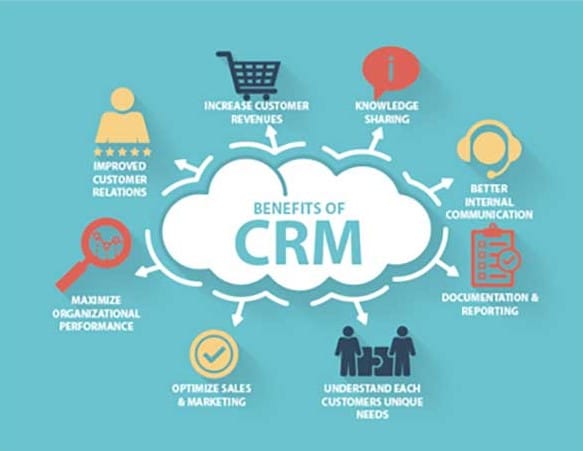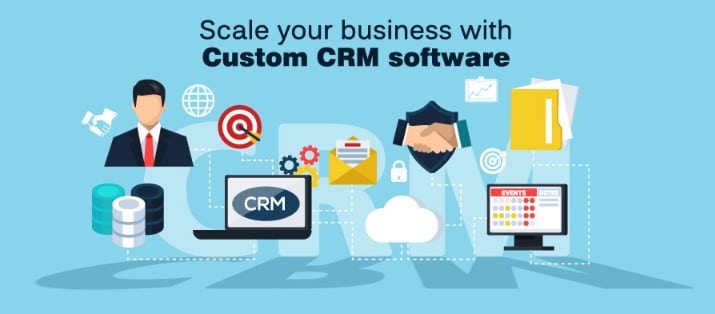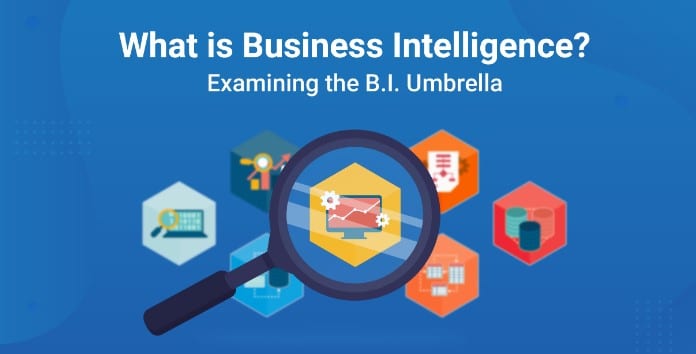In today’s business landscape, customer relationship management (CRM) has become an essential tool for organizations to effectively manage their interactions with customers. With the increasing competition and evolving customer expectations, businesses need robust CRM systems and applications to stay ahead. This article will explore the full meaning of CRM, delve into its various systems and applications, and highlight the significance of CRM in modern business practices.
What Is CRM?

CRM, an acronym for Customer Relationship Management, is a strategic approach that enables organizations to build and maintain strong relationships with their customers. It involves the integration of technology, processes, and people to manage and analyze customer interactions throughout the customer lifecycle. By implementing CRM systems, businesses can gain valuable insights into customer behavior, improve customer satisfaction, and drive profitability.
The Importance of CRM in Business
CRM plays a pivotal role in helping businesses achieve their objectives and enhance customer experiences. Here are some key reasons why CRM is crucial in modern business practices:
- Better Customer Understanding: CRM systems allow businesses to gather and analyze vast amounts of customer data, such as purchase history, preferences, and feedback. This information helps organizations gain a deeper understanding of their customers’ needs, enabling personalized interactions and targeted marketing campaigns.
- Improved Customer Service: With CRM applications, businesses can streamline their customer service processes, ensuring timely response to queries, effective issue resolution, and personalized support. This leads to higher customer satisfaction levels and increased loyalty.
- Enhanced Sales and Marketing: CRM systems provide sales teams with comprehensive customer data, enabling them to identify opportunities, track leads, and manage sales pipelines more efficiently. Additionally, CRM facilitates targeted marketing campaigns by segmenting customers based on demographics, behaviors, and preferences.
- Increased Efficiency and Productivity: By automating routine tasks, CRM systems free up valuable time for employees, allowing them to focus on higher-value activities. This boosts overall efficiency and productivity within the organization.
- Data-Driven Decision Making: CRM applications generate actionable insights through analytics and reporting functionalities. Organizations can use this data to make informed decisions, identify trends, and implement effective strategies to drive business growth.
Different Types of CRM Systems
CRM systems can be classified into various categories based on their functionalities and target areas within an organization. Here are some common types of CRM systems:
1. Operational CRM
Operational CRM systems focus on automating and improving customer-facing processes, such as sales automation, marketing automation, and customer service automation. These systems aim to streamline operations and enhance customer interactions.
2. Analytical CRM
Analytical CRM systems analyze customer data to gain insights into customer behavior, preferences, and trends. By leveraging data analytics, businesses can make data-driven decisions and develop effective strategies.
3. Collaborative CRM
Collaborative CRM systems facilitate seamless communication and collaboration among different departments within an organization. These systems promote knowledge sharing, ensuring all customer-facing teams have access to the same up-to-date customer information.
4. Strategic CRM
Strategic CRM systems focus on long-term customer loyalty and retention. They aim to develop customer-centric strategies to maximize customer lifetime value and build strong relationships.
Applications of CRM
CRM applications extend across various industries and sectors. Here are some common applications of CRM systems:
1. Sales Management
CRM systems provide sales teams with tools to manage leads, track sales activities, and forecast sales pipelines. These applications help improve sales efficiency, increase conversion rates, and enhance customer interactions throughout the sales process.
2. Marketing Automation
CRM systems offer marketing automation capabilities that enable businesses to automate repetitive marketing tasks, such as email campaigns, social media marketing, and lead nurturing. By leveraging CRM for marketing automation, organizations can deliver personalized and targeted marketing messages to the right audience at the right time, resulting in higher conversion rates and improved marketing ROI.
3. Customer Service and Support
CRM systems play a crucial role in managing customer service and support functions. These applications provide a centralized platform for tracking customer inquiries, managing support tickets, and ensuring prompt and efficient issue resolution. By leveraging CRM for customer service, businesses can enhance customer satisfaction and deliver exceptional support experiences.
4. Contact and Lead Management
CRM systems serve as a comprehensive database for storing and managing customer contacts and leads. These applications enable businesses to track and organize customer information, including contact details, interactions, and preferences. By maintaining a well-organized and up-to-date database, organizations can efficiently manage their contacts and leads, resulting in more effective sales and marketing efforts.
5. E-commerce and Online Sales
CRM systems can integrate with e-commerce platforms and online sales channels, enabling businesses to track customer interactions and behaviors across different online touchpoints. By leveraging CRM for e-commerce, organizations can personalize the online shopping experience, offer targeted promotions, and drive customer loyalty.
FAQs about CRM
- Q: What is the purpose of CRM? A: The purpose of CRM is to help businesses build and maintain strong relationships with their customers, improve customer experiences, and drive business growth.
- Q: How does CRM benefit organizations? A: CRM benefits organizations by providing a holistic view of customer interactions, enabling personalized marketing, improving customer service, increasing sales efficiency, and facilitating data-driven decision making.
- Q: What are the key features of a CRM system? A: Key features of a CRM system include contact management, lead management, sales automation, marketing automation, customer service and support, analytics and reporting, and integration capabilities.
- Q: How can CRM improve customer service? A: CRM improves customer service by providing a centralized platform for managing customer inquiries, ensuring timely response and issue resolution, and enabling personalized support based on customer preferences and history.
- Q: Can CRM be customized to specific business needs? A: Yes, CRM systems can be customized to meet specific business needs and industry requirements. Organizations can tailor CRM functionalities, workflows, and data fields to align with their unique processes.
- Q: Is CRM only for large businesses? A: No, CRM systems are beneficial for businesses of all sizes. Small and medium-sized businesses can leverage CRM to streamline their customer interactions, improve sales processes, and enhance customer satisfaction.
- Q: Is CRM software expensive to implement? A: The cost of CRM software implementation can vary depending on factors such as the size of the organization, the chosen CRM vendor, and the desired functionalities. While some CRM solutions can be costly, there are also affordable options available, including cloud-based CRM platforms with flexible pricing plans.
- Q: How long does it take to implement a CRM system? A: The implementation timeline for a CRM system can vary depending on the complexity of the organization’s processes and the scope of the CRM project. It can range from a few weeks for small businesses to several months for larger organizations. Proper planning, clear objectives, and effective project management are essential for a smooth CRM implementation.
- Q: Can CRM help with customer retention? A: Yes, CRM systems can play a significant role in customer retention. By utilizing customer data and analytics, businesses can identify and address customer needs, offer personalized experiences, and implement targeted retention strategies. CRM applications provide insights that enable organizations to proactively engage with customers, build loyalty, and reduce churn.
- Q: Can CRM integrate with other business systems? A: Yes, CRM systems are designed to integrate with other business systems, such as ERP (Enterprise Resource Planning) software, marketing automation platforms, e-commerce platforms, and customer support tools. Integration allows seamless data flow between systems, ensuring a comprehensive view of customer interactions across various touchpoints.
- Q: Is CRM suitable for B2B (Business-to-Business) companies? A: Absolutely. CRM systems are beneficial for B2B companies as well. They help manage customer relationships, track sales pipelines, facilitate lead nurturing, and improve communication with clients. B2B organizations can leverage CRM to enhance their sales processes and provide personalized support to their business customers.
- Q: Can CRM be accessed remotely? A: Yes, many CRM systems offer remote accessibility through web-based or cloud-based platforms. This allows users to access CRM data and functionalities from anywhere with an internet connection, enabling remote work, mobile access, and collaboration among team members across different locations.
Conclusion
In conclusion, CRM (Customer Relationship Management) systems and applications have become indispensable tools for businesses of all sizes and industries. By effectively managing customer interactions, analyzing data, and streamlining processes, CRM empowers organizations to build strong customer relationships, improve customer experiences, and drive business growth. The various types of CRM systems cater to different aspects of customer management, including sales, marketing, customer service, and collaboration. With the right CRM strategy and implementation, businesses can gain valuable insights, increase operational efficiency, enhance customer satisfaction, and gain a competitive edge in the market. So, embrace CRM and leverage its power to unlock the full potential of your customer relationships.

